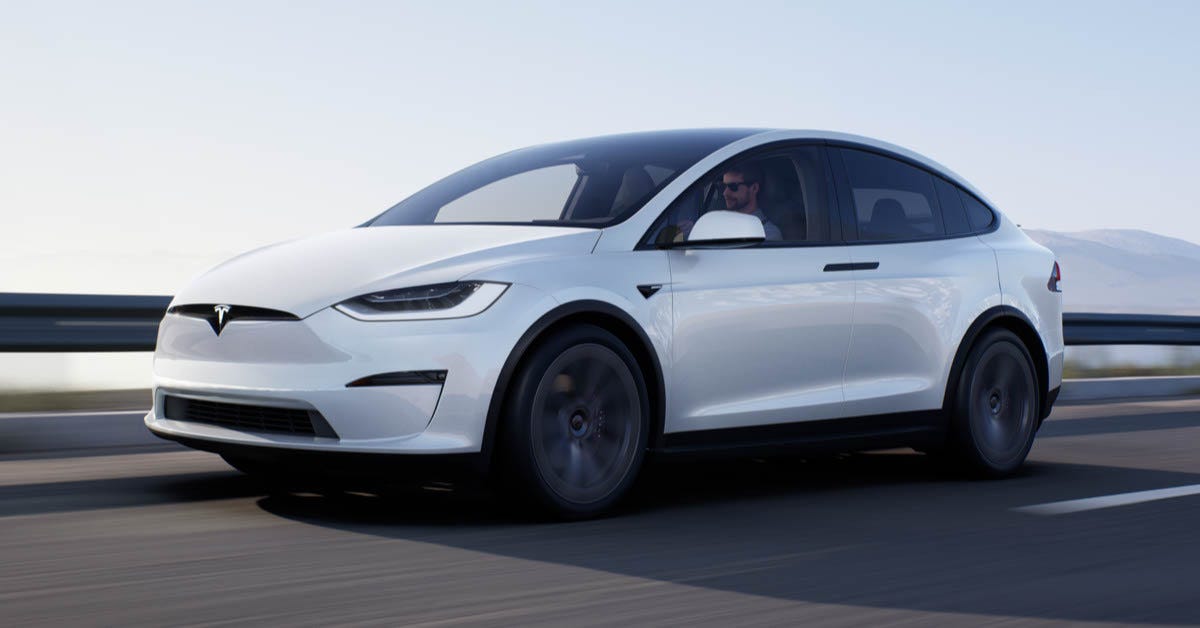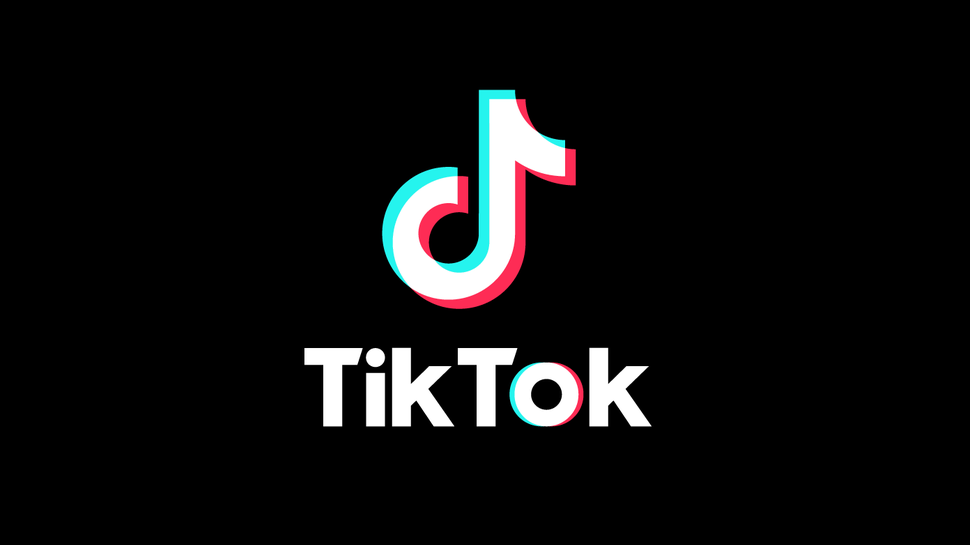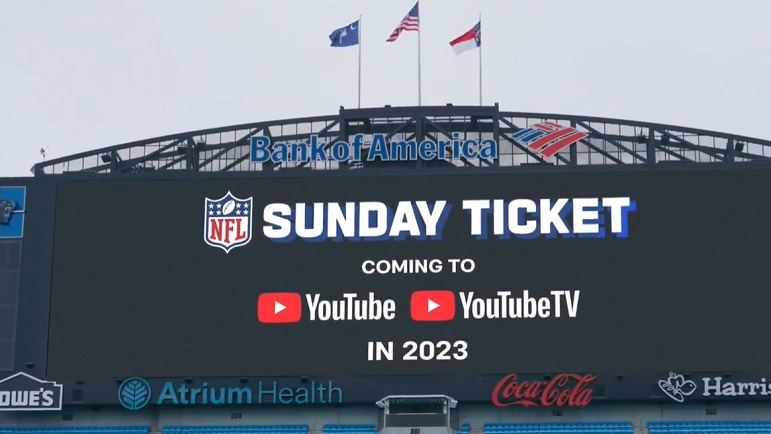Stuff Worth Knowing for the Week of December 19, 2022
Epic pays a huge fine related to Fortnite, Tesla's stock crash continues, and Google gets NFL Sunday Ticket.
Welcome back to Stuff Worth Knowing! Each week, I'll round up news related to tech, video games, film, television, anime, and more. At the end of each newsletter, there will be a section called On The Calendar, which will include some of those notable dates that are near-term. Oh, and I also launched my Patreon, SavePhile, where my more thoughtful musings on any topic will go.
It's the holiday week! As I write this newsletter, it's Christmas Eve… eve and the sixth day of Hanukkah. Everyone is off and (hopefully) enjoying time with their families. The mission doesn't end though and I take no breaks! Here's this week's important news.
Video Games 🎮
Epic Games Pays $520 Million For Violating COPPA and Shady Payment Practices
According to the Wall Street Journal, Epic Games has agreed to pay $520 million to settle two civil complaints filed against it by the Federal Trade Commission. The first chunk is a $275 million penalty related to violations of the Children’s Online Privacy Protection Rule (COPPA). In a previous complaint, the FTC said that Epic turned on voice and text chat by default in Fortnite, opening children to harassment. The government body also said that Epic collected personal information from children under the age of 13 without their parents' consent.
As a fix to one of these problems, Epic introduced Cabined Accounts earlier this month. These accounts are meant for players under the age of 13, and lock out certain features like voice chat, item purchases, and trade in games like Rocket League. If a player is found to be under 13 during age verification, their account will be Cabined automatically until a parent consents to allow the other features.
The other chunk of the settlement, $245 million, is related to another complaint alleging that Epic Games charged accounts for Fortnite purchases without parental consent, while also making it much more difficult to undo purchases. The FTC said that despite Fortnite being free, the company obscures details about in-app purchases, designs the user interface for cosmetics to trick users into purchases, and hides the "Undo" button for purchases in-game. The complaint further notes that if users dispute the charges via their banks, the company then locks out the associated account.
The FTC says the $245 million will be used for refunds of those affected by Epic's practices. It will eventually have more information about the refund program at the link above.
Why It's Worth Knowing: This is merely a drop in the bucket for Epic Games and Fortnite in particular. The game's finances are not public, but during the legal battle with Apple, it was revealed that Fortnite made $5.4 billion in revenue in 2018 and $3.7 billion in 2019. But at the very least, the penalties drive Epic Games to patch some of these holes that target children directly.
Blizzard's Unnamed Survival Game Team Increases in Size, Gains Far Cry Director
In an End-Of-Year update on Blizzard Entertainment, CEO Mike Ybarra revealed the state of the company's latest original IP. Apparently, the team is currently led by Dan Hay, who some might know as the former creative director of Far Cry 5 and executive director of the entire Far Cry franchise. Hay left Ubisoft in November 2021. According to a report from VentureBeat, Hay had been overseeing the development of a live-service Far Cry game at the time of his departure.
His new position was unknown until Ybarra's blog post. According to Ybarra, the survival game team has grown considerably this year. "The team has doubled in size this year and we’re looking to grow it even more in the new year!" he said.
Why It's Worth Knowing: Activision-Blizzard as whole is undergoing legal troubles and other issues related to toxic work environments, sexual harassment allegations, and union busting. At the same time, Blizzard Entertainment is trying to crawl out of a mire of lost trust: Diablo Immortal was panned for terrible monetization, Overwatch 2 landed with a dull thud, and World of Warcraft is still struggling to really find itself again.
Blizzard revealed the new survival IP earlier this year. A new game that really hits could help morale and regain a bit of that old Blizzard razzle-dazzle. Like "they" say, you're only as good as your last game. (And having a healthy workplace.)
High on Life Becomes Xbox Game Pass' Biggest Launch of 2022
Earlier this week, Microsoft announced that High on Life, the comedy-focused first-person shooter from Rick and Morty co-creator Justiin Roiland's Squanch Games, was the biggest Xbox Game Pass launch in 2022. The title also happens to be the biggest third-party Game Pass launch ever. We don't really know what that means because we don't have numbers, but there you go.
Why It's Worth Knowing: In part, this is notable because it shows how Game Pass can push a game to higher visibility. More importantly, the Game Pass visibility has pushed an entire side of the discourse. Why? Because on MetaCritic, the game has a Metascore of 68 and on OpenCritic, it has a top critic average of 69. It is a scant lever in the "critics vs. audience" argument, with the audience feeling warmer on the game. I'm just keeping you apprised of the discourse.
Tech ⌨️
This Week In Twitter: Elon's Poll Tells Him to Step Down
Last week ended with Twitter CEO Elon Musk putting up a poll asking whether he should step down as head of Twitter. The poll ended on Monday with "Yes" winning with 57.5%. Those in support of Musk, including Mega founder Kim Dotcom tried to assert that the poll was invalid due to overwhelming bot accounts, without explaining why the previous polls were still valid. A day after the poll closed, Musk tweeted that he would resign as CEO once he found someone to take the job, while he would remain to run the software and server teams.
The additional Verified checkmarks launched this week, with many businesses getting the new Gold checks. Twitter also added View Counts to the standard Twitter web view, allowing everyone to see what used to be known as Impressions on the backend. Finally, Twitter Blue For Business was released, offering businesses "an opportunity to further enhance and distinguish businesses on Twitter." Basically, businesses and organizations can affiliate accounts for employees, tying the larger verification status to the smaller account.
In a Twitter Spaces conversation I'll dive into more in the next news item, Musk justified his actions since taking over. He stated that the cuts were needed as the company was "in the fast lane to bankruptcy since May." Musk said that with the changes he's made Twitter could be okay by next year. Of course, looming in the background are unpaid invoices to vendors and rent on Twitter offices, and that's before you get to the legal costs of Musk's many drastic actions.
It's been a light week in terms of Twitter news! I guess even Musk takes a knee on the holidays. That said, the pain was felt at one of Musk's other companies…
This Week In Tesla: The Stock Continues to Crash
Part of the ongoing mess at Twitter is how it's affecting the financials of one of Musk's other companies, Tesla Motors. Tesla stock hit an all-time high of $409.97 per share on November 4, 2021 and it's been a rough, steep drop since then. The most recent dip started around a month prior to Musk taking control of Twitter, but his actions since haven't helped the drop. As of this writing, the stock sits at $123.15 per share.
Tesla's fall is due to a number of factors. It was probably overvalued, something a number of analysts have pointed out for a while now. Then there's the general recession, which is making its pain felt at a ton of companies globally.
Musk's tweets are also souring some consumers' affinity for the company by association. Many purchase electric vehicles because they're concerned about the environment, which is generally a left-leaning cause. The Wall Street Journal reported that for the first time since YouGov began tracking sentiment around Tesla in 2016, there's now a more negative perception of the brand. That's largely down to Musk.
"Tesla is Musk and Musk is Tesla," Wedbush Securities analyst Dan Ives told The New York Times.
It doesn't help that Musk himself continues to sell Tesla shares to prop up Twitter. In a Twitter Spaces call with investors and analysts, Musk said he won't sell Tesla stock again for 18-24 months. Of course, he said the same in April of this year, only to sell further shares.
It also doesn't improve matters that Tesla's Full Self-Driving is in the news for causing a number of crashes. The software triggered an eight-car pileup in the San Francisco Bay Area over Thanksgiving. The National Highway Traffic Safety Administration is investigating that crash and another in Ohio, where a Tesla crashed into an Ohio Highway Patrol SUV. (In the Spaces conversation, Musk apparently admitted that he's had to intervene to stop the Autopilot features on his own Tesla.) The feature is currently in beta, but one wonders if that beta should be far more limited.
While all this is happening, electric vehicles from rival car makers are gaining traction. Tesla has a wide lead, but the more that Musk messes with the flailing Twitter rather than righting the ship at Tesla, the further the stock has to fall. According to Electrek, Tesla Motors will be implementing a hiring freeze with more layoffs coming in the next quarter.
Why It's Worth Knowing: Tesla leads in electric vehicles. There's really no way around this fact and the company does, in fact, have a better product than its competition. But the gap is tightening and Musk's split focus is hurting Tesla immensely.
LastPass Confirms Customer Password Vaults Were Stolen
Things are only getting worse for LastPass. Back in August, the password vault service announced that it had suffered a data breach. Then in November, there was a second breach of the service. And today, LastPass CEO Karim Toubba said that the November breach was actually worse than previously announced.
In an updated blog post, Toubba said that a copy of "a backup of customer vault data" was stolen. Basically, the August 2022 hack allowed someone to steal information from the company's development environment, which was then used to hack another employee and obtain internal credentials and keys.
The company says that the stolen data is encrypted, but does contain unencrypted data like website URLs, letting the hacker know where each master account has other accounts. LastPass does acknowledge that with the stolen data, the hacker in question could brute-force the master password associated with an account, gaining access to the entire password vault.
Why It's Worth Knowing: Part of the issue here is LastPass was slow to offer further information on the breach. If you are a LastPass user, there are alternatives like 1Password and Bitwarden out there. At the very least, you should change your master password and perhaps passwords for other accounts. Everyone needs a good password manager. There's too many damned accounts out there vying for your attention and no one person can remember all their passwords.
TikTok Parent Company Obtained User Data of Several Journalists
ByteDance is having a hard time staying out of hot water with the U.S. federal government. After an internal investigation by an outside law firm, ByteDance announced that employees had obtained user data related to four journalists and other users. The news came from Forbes and the New York Times, who both obtained an email sent to employees on the matter.
The employees involved were part of the team related to employee conduct, which was looking for the internal leakers related to a BuzzFeed article posted in June of this year. This was followed by a Forbes article about TikTok data being used to monitor the physical location of American citizens, posted by Emily Baker-White, who wrote the BuzzFeed article before moving to Forbes. In their hunt for Baker-While's leakers, the employees obtained IP addresses and other data related to Baker-White, Katharine Schwab and Richard Nieva, all of whom work at Forbes. Cristina Criddle of the Financial Times was also a part of the attempted sting.
"It is standard practice for companies to have an internal audit group authorized to investigate code of conduct violations," TikTok General Counsel Erich Andersen wrote in another internal email obtained by Forbes. "However, in this case individuals misused their authority to obtain access to TikTok user data."
The individuals in question have been fired, but the fact that they were able to obtain the user data at all puts all of the concerns about ByteDance's control of data into sharp relief. Many U.S. government officials are not happy with the Chinese company and this situation only increases the heat. The New York Times reported this week that potential legislation against TikTok is growing, with bans of the service in government-issued devices happening in 14 states.
Meta Agrees to Pay $725 Million in Cambridge Analytica Scandal
You can be forgiven for forgetting this one. In 2015, U.K. consulting firm Cambridge Analytica took data from Facebook users through an unrelated survey app. Once users gave the app account permissions, it took far more data than was originally agreed upon including geographic location and liked content. Many users and the U.S. government felt that was bad. Meta settled with the FTC for $5 billion in 2019 with further settlements following that.
This week, Meta agreed to settle a class-action lawsuit to the tune of $725 million. Like most class-action lawsuits, Facebook users affected will eventually be able to apply for a small bit of that overall pot.
"The proposed Settlement of $725,000,000 is the largest recovery ever achieved in a data privacy class action and the most Facebook has ever paid to resolve a private class action. The amount of the recovery is particularly striking given that Facebook argued that its users consented to the practices at issue, and that the class suffered no actual damages," says the filing, obtained by Reuters.
"Significantly, since this case started, Facebook has ceased allowing third parties to access data about users through their friends, has meaningfully enhanced its ability to restrict and monitor how third parties acquire and use Facebook users’ information, and developed more robust tools to tell users what information Facebook collects and shares about them."
Film, Television, and Streaming 🎞️
YouTube Clenches NFL Sunday Ticket, Starting in 2023
NFL Sunday Ticket allows folks to view all out-of-market Sunday regular-season NFL games, meaning it's a big draw for avid football aficionados. NFL Sunday Ticket has been on DirecTV since 1994, when the satellite service entered into an eight-year contract. They extended the contract later, with the most-recent iteration being worth around $1.5 billion per year. That contract came to an end in 2022, kicking off a bidding war to gain the rights to those lucrative NFL games. The bidding war was hot and heavy this year, with Disney, Apple, and Amazon all submitting bids.
This week, Google announced that it was the ultimate winner, with NFL Sunday Ticket coming to YouTube TV and YouTube Primetime Channels in 2023 and beyond. As part of the deal, "key" YouTube creators will get exclusive access to official content and other opportunities related to the NFL. According to the Wall Street Journal, Google is paying $2 billion per year for the rights.
Why It's Worth Knowing: As the streaming war grows, live sports is becoming a key pillar of many of the major streamers. Disney already has ESPN, but the tech companies are getting into the game quickly. Amazon picked up the rights to Thursday Night Football last year, getting a jumpstart on the deal for the 2022 season. Likewise, Apple got the rights to all Major League Soccer games for ten years and MLB's Friday Night Baseball earlier this year. The number of available major sports is dwindling, so buyers need to jump on these deals quickly, usually for lengthy terms.
Judge Rules Universal Can Be Sued Over Deceptive Movie Trailer
Earlier this year, two fans of actress Ana de Armas sued Universal Studios. The pair stated that a trailer for the film Yesterday showed the actress in the trailers, despite her not being in the final film. They alleged this was a deceptive practice on Universal's part, subject to California's False Advertising laws.
In its arguments, Universal Studios tried to state that trailers are not commercial speech, which is honestly a bizarre argument to make. U.S. District Judge Stephen Wilson disagreed, stating that a movie trailer is specifically commercial speech trying to sell the consumer on a film. Universal wanted the case thrown out and the judge stated it could proceed, according to a report by Variety.
Why It's Worth Knowing: A lot of this has been incorrectly reported as a case where any misleading trailer could be subject to a lawsuit. (A lot of mentions online about misleading footage in Marvel films.) The judge's statements point to this being akin to a bullet point feature in marketing not being in the final product. "The Court’s holding is limited to representations as to whether an actress or scene is in the movie, and nothing else,” said the judge. Part of this is related to the significance of the addition.
In this case, some have reported Ana de Armas as a potential cameo in Yesterday. The issue here is when the trailer was cut, this apparently wasn't a cameo. De Armas was the second love interest in the film. She was cut because the storyline didn't play well with the audience, according to the screenwriter in an interview with CinemaBlend.
Cutting an entire actor out of a film is actually pretty rare. Another example that would probably fall afoul of this would be Kevin Spacey in All the Money in the World, which has a trailer where he is clearly shown as one of the main actors in the film. When Spacey had sexual assault allegations against him, he was replaced in the film by Christopher Plummer. One could argue that they were misled and the movie was sold on Spacey, but I doubt many would go to bat legally for the actor.
The case still has to proceed, but even if it does succeed, I think you're not looking at a spurious definition of "misleading" here.
On My Mind 🧠
This section is where I can highlight statements or moments that aren't entirely newsworthy, but still interesting.
Hideo Kojima On How He's Approaching The Death Stranding Film : There's a Death Stranding movie coming, which is interesting considering that the game already boasts a host of Hollywood talent. Kojima is teaming up with the Barbarian executive producer Alex Lebovici to produce the film. In an interview with IGN, he explains why he made that choice.
"I was on video calls with lots of people in Hollywood every week beginning last year, and not just for Death Stranding. I received a lot of offers, but my intention from the start was never to make a blockbuster film. Alex Lebovici from Hammerstone Studios shared my vision with regards to that. There were a lot of pitches to make a large-scale movie with famous actors and flashy explosions, but what good would explosions be in Death Stranding? Making money isn't something I'm focused on at all, either. I'm aiming for a more arthouse approach, and the only person who offered to make a film like that was Alex Lebovici, which makes me think he's a rather unusual type."
Meta Talks About The Future Without Mentioning “Metaverse”: In a blog post by CTO Andrew Bosworth, Meta laid out it future plans for 2023 and beyond. The interesting bit within this longer post is that Bosworth never mentions the metaverse. Not a single time. He does talk about mixed reality a good deal, however.
“Over time it’s clear that mixed reality will help VR devices become increasingly compelling alternatives to laptops and desktop computers, placing virtual screens and interfaces on your desk or in your hands. It won’t be long before a VR headset is capable of emulating a powerful home computer setup, from a device that fits in a backpack and can be used anywhere. The journey toward that type of device took a big step forward with Quest Pro this year.”
“Our vision for true AR glasses will require years of progress making our devices slimmer, lighter, faster, and more powerful, all while consuming way less battery power and generating much less heat. One major efficiency gain will come when devices are smart enough to only render the highest-resolution graphics in the small area where a user is actually looking. This October we demonstrated this capability for the first time thanks to the eye tracking technology on Quest Pro, and it’s going to be driving progress in VR and AR for many years to come.”








